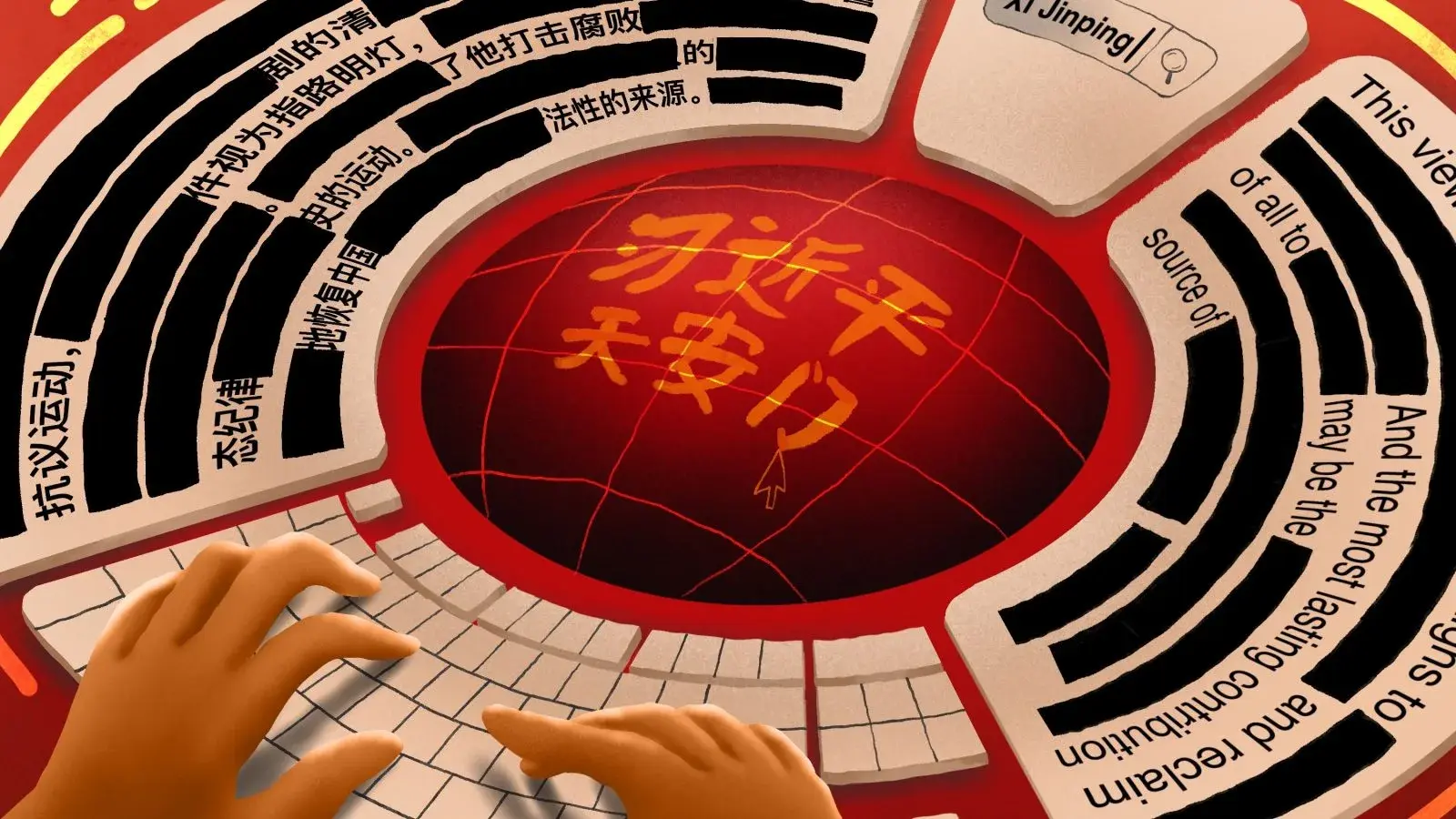- Bing’s translation and search engine services in China censor more extensively than Chinese competitors’ services do, according to new research.
- Microsoft has maintained its heavy censorship of China-based services despite growing scrutiny from U.S. lawmakers.
- Chinese tech firms are motivated to censor less severely, experts say.
Bing’s censorship rules in China are so stringent that even mentioning President Xi Jinping leads to a complete block of translation results, according to new research by the University of Toronto’s Citizen Lab that has been shared exclusively with Rest of World.
The institute found that Microsoft censors its Bing translation results more than top Chinese services, including Baidu Translate and Tencent Machine Translation. Bing became the only major foreign translation and search engine service available in China after Google withdrew from the Chinese market in 2010.
“If you try to translate five paragraphs of text, and two sentences contain a mention of Xi, Bing’s competitors in China would delete those two sentences and translate the rest. In our testing, Bing always censors the entire output. You get a blank. It is more extreme,” Jeffrey Knockel, senior research associate at Citizen Lab, told Rest of World.



Probably a bug in censorship that they now consider a feature. Most likely it can’t find the right sentence to censor, so it just doesn’t try.
Anti Commercial-AI license